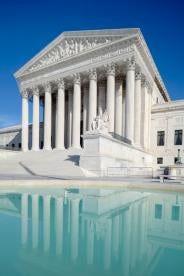In 2010, the United States Department of Labor (DOL) issued an “Administrator’s Interpretation” stating that DOL would no longer consider employees who perform duties typical of mortgage loan officers to be exempt from the Fair Labor Standards Act’s overtime pay requirements. This particular ruling revolved around the FLSA’s exemption for administrative employees.

The DOL’s 2010 stance represented a change of course, as DOL had previously issued an “Opinion Letter” in 2006 stating that mortgage loan officers were generally exempt from the FLSA’s overtime pay requirements under the administrative exemption. Litigation ensued following the 2010 Administrator’s Interpretation. The focus of that litigation was a rather technical issue: Should DOL have followed the formal rulemaking process before it could flip-flop on its interpretation of its own regulations? You can read more about the details of the litigation here.
On Monday, March 9, 2015, the United States Supreme Court ruled that DOL was not required to follow the formal rulemaking process whenever it took a position that was contrary to previous guidance issued by DOL.
Why does this ruling matter to employers of mortgage loan officers? Those businesses should classify those employees as non-exempt and evaluate their compensation structures immediately to comply with DOL’s interpretation of the administrative exemption. Otherwise, these employers run the risk of DOL enforcement actions and private litigation. Of course, these employers can disregard the DOL’s interpretation and rely on individual merits of their classifications, but they would do so at their peril.
Why does this ruling matter to employers generally? Based on the Court’s ruling, DOL can arguably change its tune about any interpretation of its own interpretive regulations without any warning to employers. An emboldened DOL could revisit regulatory interpretations that currently favor employers and flip those interpretations on their head, without warning. More importantly, the Court’s ruling was not limited to the DOL, which means that other federal administrative agencies (e.g., OSHA) could follow suit, leaving employers with little recourse to challenge such changes of heart.


 i
i

